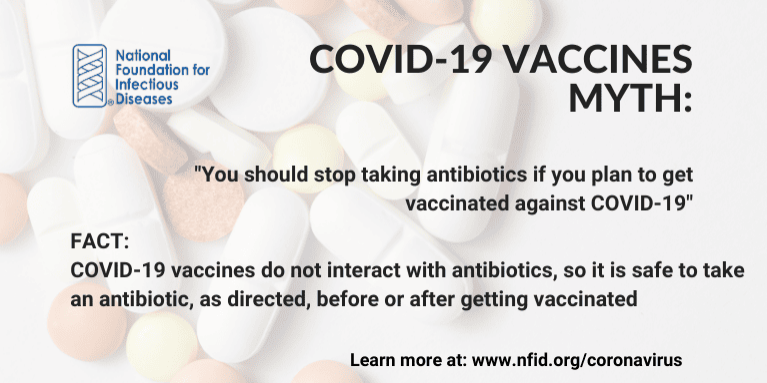
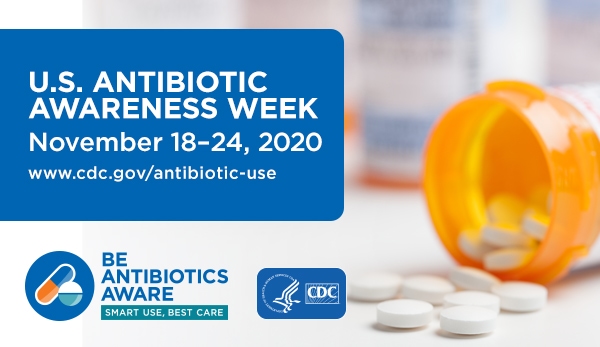 Each year in the US, more than 2.8 million antibiotic-resistant infections occur, and more than 35,000 people die as a result. Up to 50 percent of all antibiotics prescribed are not prescribed appropriately or are not needed at all.
Each year in the US, more than 2.8 million antibiotic-resistant infections occur, and more than 35,000 people die as a result. Up to 50 percent of all antibiotics prescribed are not prescribed appropriately or are not needed at all.
November 18-24, 2020 is US Antibiotics Awareness Week, an annual observance to raise awareness of the threat of antibiotic resistance and the importance of appropriate antibiotic use, or antibiotic stewardship. The National Foundation for Infectious Diseases (NFID) is joining the Centers for Disease Control and Prevention (CDC) as a partner to share 7 key facts that you should know about antibiotics:
- Antibiotics can save lives. When used appropriately, antibiotics work remarkably well and fast. The benefits outweigh potential side effects or the risk of resistance.
- Antibiotics are not always the answer. Some patients may appear to benefit from antibiotics, when, in fact, their persistent cough/cold would have gone away in about the same amount of time even without antibiotics.
- Antibiotics do not work on viruses. Antibiotics are not effective against influenza (flu), coronaviruses, or other viruses that cause colds, bronchitis, or runny noses, even if the mucus is thick, yellow, or green.
- Antibiotics only work against bacteria but not all bacterial infections need to be treated with antibiotics. Some bacterial infections, including many sinus infections and some ear infections, will resolve without antibiotics.
- Antibiotics will not make you feel better if you have a virus. Respiratory viruses usually go away in a week or two without medication. Talk to a healthcare professional about things you can do to feel better, like drinking plenty of liquids, getting enough sleep, and staying home to rest.
- If you do need antibiotics, take them exactly as prescribed. Talk to a healthcare professional if you have any questions or if you develop side effects, especially diarrhea since that could be caused by Clostridioides difficile (C. difficile), which needs to be treated.
- Antibiotics are critical tools for treating life-threatening conditions, including sepsis and certain types of pneumonia. This makes it all the more important to use antibiotics appropriately.
The human body is full of bacteria, so when you take an antibiotic, the “good” bacteria in your gut may become more resistant to that antibiotic. Some people will not experience consequences from this, but others may develop subsequent resistant infections or pass resistant bugs on to family members. Antibiotic stewardship helps to keep people healthy, prevent drug-resistance, and ensure that life-saving antibiotics will work for future generations.
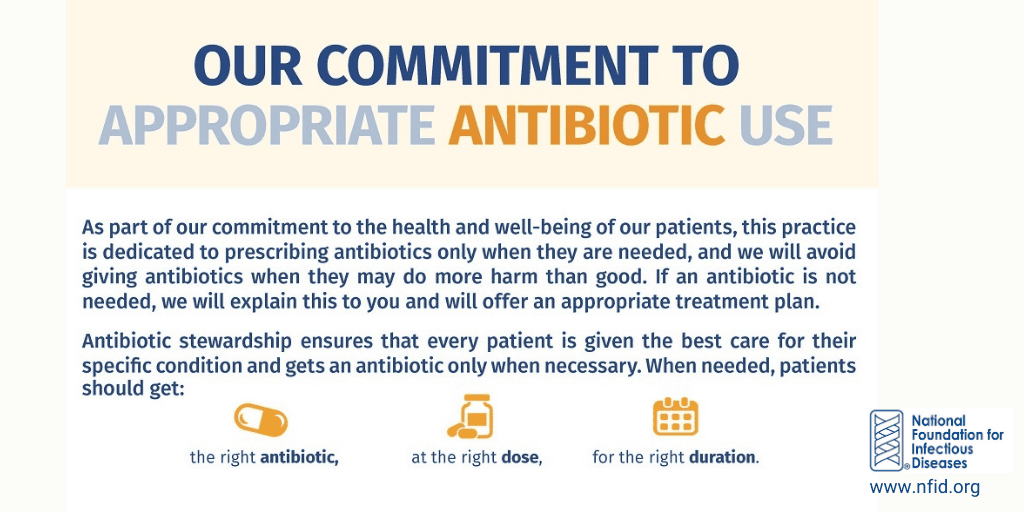 To show your commitment to reducing antibiotic resistance through appropriate antibiotic use, take the NFID Antibiotic Stewardship Pledge.
To show your commitment to reducing antibiotic resistance through appropriate antibiotic use, take the NFID Antibiotic Stewardship Pledge.
To join the conversation and get the latest news on infectious diseases, follow NFID on Twitter using the hashtags #BeAntibioticsAware and #AntibioticSmart, like us on Facebook, follow us on Instagram, visit us on LinkedIn, and subscribe to receive future NFID Updates.
For more information about COVID-19 vaccines, including interaction with antibiotics and other drugs, see the NFID Frequently Asked Questions About COVID-19 Vaccines.
Related Posts
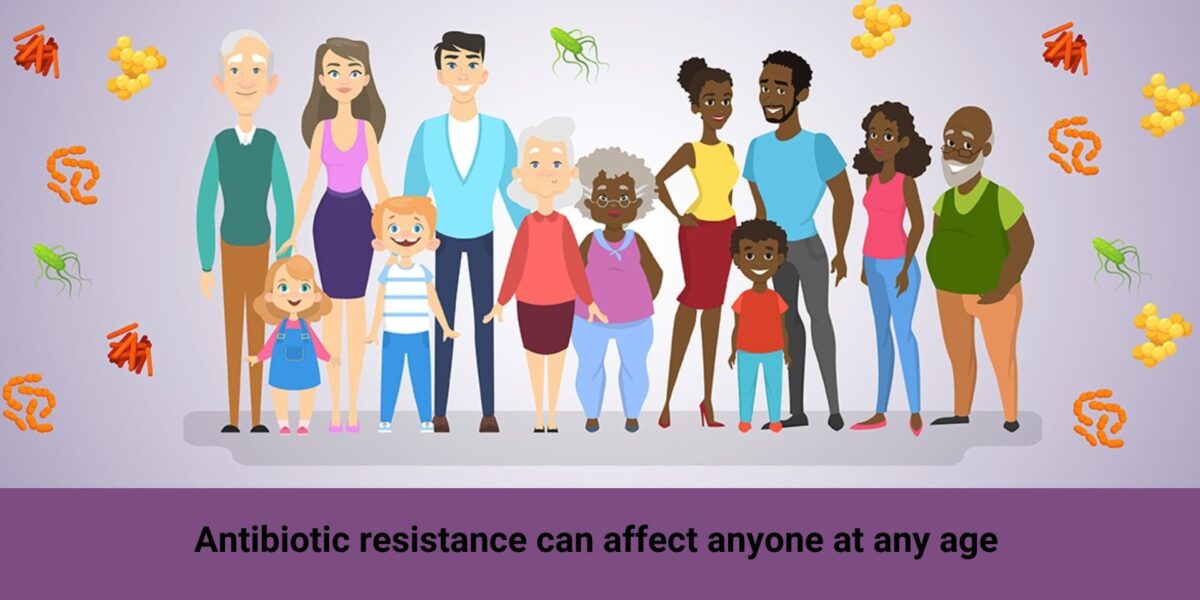
5 Things To Know about Antibiotic Resistance
There are steps everyone can take to help protect against drug-resistant infections
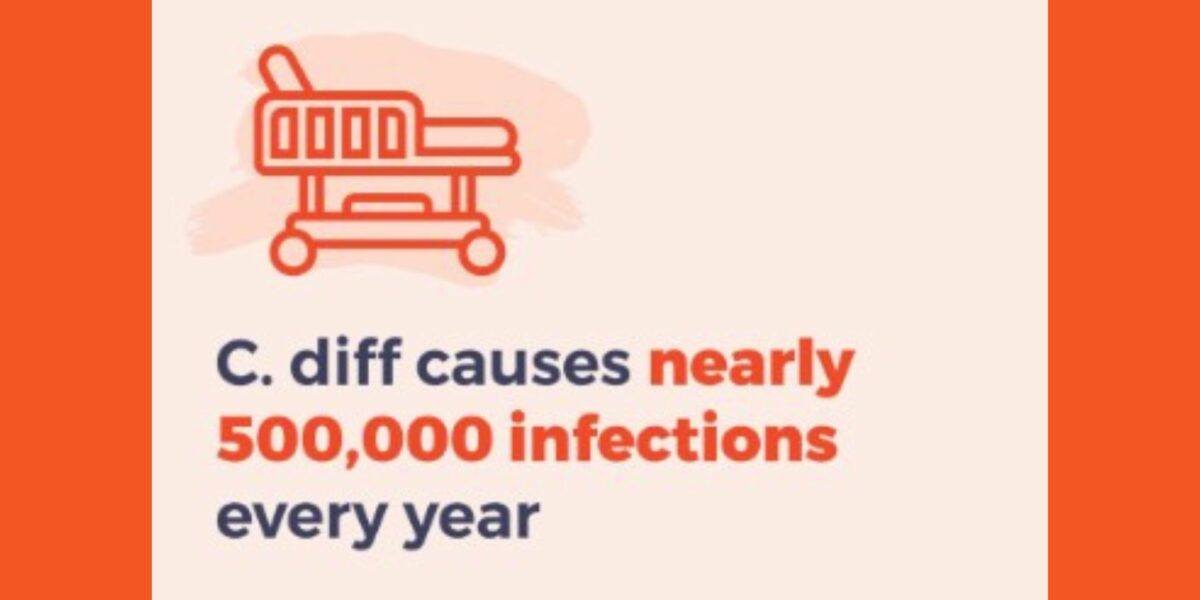
C. diff: An Urgent Public Health Threat
November is C. diff Awareness Month, an annual opportunity to raise awareness about this common but potentially deadly infection
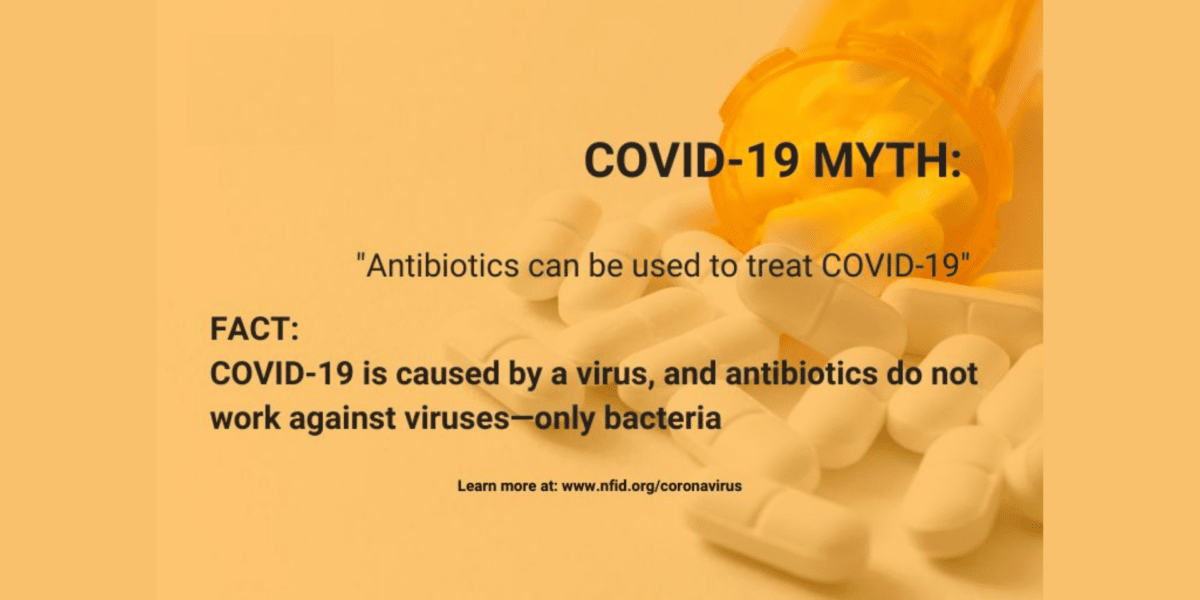
A Perfect Storm: Antibiotic Resistance and COVID-19
COVID-19 disease caused surges in hospitalization with a proportion of patients experiencing severe disease that led to prolonged hospitalization and the use of invasive medical devices. At the same time, the pandemic also diminished the ability of hospitals to perform optimal infection prevention and antibiotic stewardship activities as resources were diverted to COVID-19 response …
